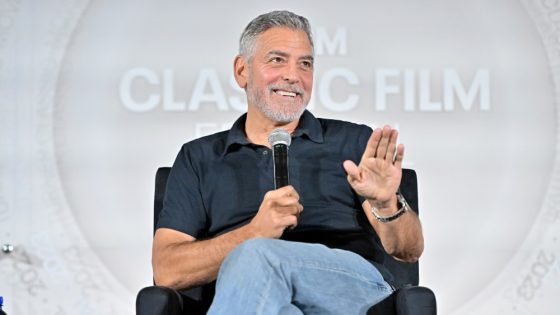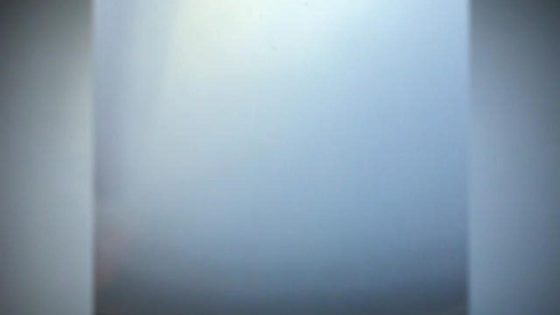George Clooney’s New York Times op-ed calling for President Biden to drop out of the election felt like something more than standard-issue celebrity activism for a few reasons. For the political class, it was not just an actor speaking, but a major Democratic Party donor and fundraiser — one whose insight on Biden’s age and manner was bolstered by his having seen the President in action at a June 15 fundraiser.
But for the general public, something more ineffable is at work. On- and off-screen, Clooney has painstakingly constructed an image for himself that’s unlike practically any of his peers on the A-list. As an actor and as a public figure, Clooney is a self-styled American conscience, a leading-man throwback who provides a sort of guiding sensibility to the films he anchors, and to the causes he supports.
Beyond his fundraising for the Democrats, Clooney is a plainspoken advocate for the causes he supports; cannily, he has played off of the public’s expectation that actors speaking out on politics are dilletantish or out-of-touch. He flipped the expression on its head while accepting an Oscar in 2006, saying in his speech that Hollywood is out-of-touch because, in fact, it’s ahead of the curve: “We’re the ones who talked about AIDS when it was just being whispered, and we talked about civil rights when it wasn’t really popular.”
By 2006, of course, AIDS activism and civil rights were broadly popular and accepted: Clooney was not stepping out on a limb. His campaigning for the people of Sudan’s Darfur region in the midst of a lengthy civil war, or — closer to home for him, certainly — his excoriating speech against paparazzi pursuit of public figures after Princess Diana’s 1997 death are examples of his gift for placing new information in plain and easily comprehensible terms. His gift for oratory recalls faded actor Ronald Reagan’s time as a contracted speaker on behalf of General Electric, broadcasting a set of ideas (in Reagan’s case, conservative ones) through the power of charisma and of self-belief.
His New York Times op-ed is in that Clooney voice; one can imagine him reading it. And one can imagine a similar piece being written by Tom Hanks, perhaps the only other performer in Hollywood with that particular gravitas — but Hanks, in his greatest roles, tends toward the harried everyman. Clooney has an actorly authority borrowed from Old Hollywood; his piece, like all of Clooney’s acts in public, drafts off the image he’s been building onscreen for 30 years, since he played the compassionate and heroic Dr. Doug Ross on “ER.”
I saw, for instance, memes on social media comparing Clooney’s writing the piece to his character in “Michael Clayton” exposing the villainous corporate lawyer Karen Crowder (Tilda Swinton). In that film, Clooney’s character, a legal fixer, insists to the end that he’s amoral, that he just goes where he’s ordered in order to clean up messes on his employer’s behalf. It just so happens, though, that the action of the film culminates in his exposing grand-scale wrongdoing, and that the film ends with him, exhausted, riding in a cab to nowhere, certain of nothing but that he did the right thing.
This is prime Clooney: He just can’t help playing the good guy, even when the morality seems murky. In the “Ocean’s” franchise, he’s a thief who steals exclusively from buffoonish thugs; in “Up in the Air,” he’s a corporate stooge, but one who realizes the error of his ways. There’s just enough grit in his goodness to keep things interesting. Times he’s had to play morally repellent characters — not like Michael Clayton, who has guiding principles even as he denies it, but true heels — it hasn’t landed. In “The Ides of March,” where he plays a moral vacuum running for the Democratic nomination for president, he strains credulity. Directing himself in that film, Clooney seemed to have intended to play against his own familiar image. But we simply know him too well.
Or we think we do. Clooney is tactical with what he chooses to share, both about his life and about his politics. While globally famous, he has established a sense of himself as not interested in exposure for exposure’s sake; he famously refused to attend the Oscars until he was nominated, claiming he lacked the credibility to be there. In recent years, he’s receded from view somewhat, focusing on directing films and on business endeavors. He’s appeared in only two credited live-action roles so far this decade, with a third, the comedy “Wolfs,” coming in September. (Clooney’s directing career peaked with his second film, “Good Night, and Good Luck,” about heroic TV anchor Edward R. Murrow’s use of his position and his pulpit to fight McCarthyism; subsequent efforts, like “The Monuments Men,” “Suburbicon,” and “The Boys in the Boat” have been interesting only inasmuch as they reveal Clooney’s passionate interest in American history.)
His step out of the public eye means when he speaks, it has an impact — a greater one than it might have were he omnipresent, all the time. And perhaps the canniest aspect of his work, his activism, and his recent op-ed is his attempt to remove himself from the center of the narrative. His Oscars speech, after all, highlighted not his own beliefs, exactly, but the Hollywood community’s work as a group. His turn to directing has been a way to keep a toe in the industry without being the star of the show; of his last four directorial efforts, he appears in only one.
And his op-ed presented Clooney not as that much-hated thing, an actor diving into political affairs with little grounding and offering peremptory orders on how the world ought to operate, but as a member of a party. “As Democrats,” Clooney wrote, “we collectively hold our breath or turn down the volume whenever we see the president, whom we respect, walk off Air Force One or walk back to a mic to answer an unscripted question.”
That “we,” the group Clooney is addressing and the one he is a part of, both respect President Biden and feel sorrow at his aging, is presumed; it’s the Reaganite trick of bringing the audience in, using star power to convince them, for a moment, that the star is really just one of us, a reasonable person making clear and plain observations. No star but Clooney, perhaps, could have made such an appeal, not merely because he has recently seen Biden but because he’s so thoroughly convinced the public that he sees clearly.
Source Agencies


